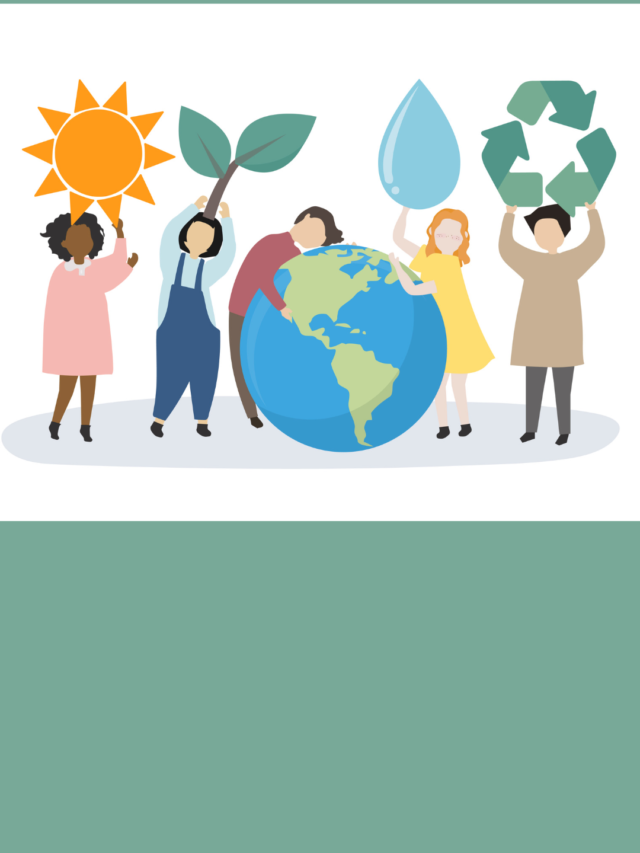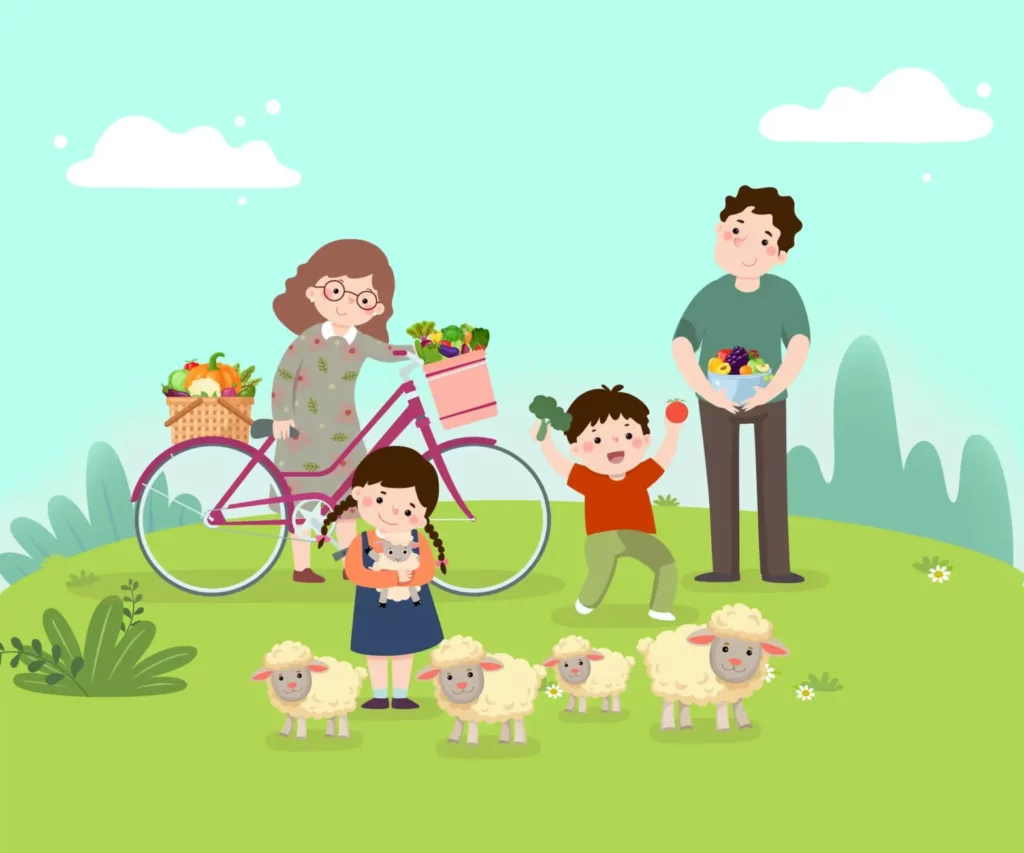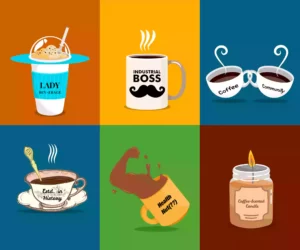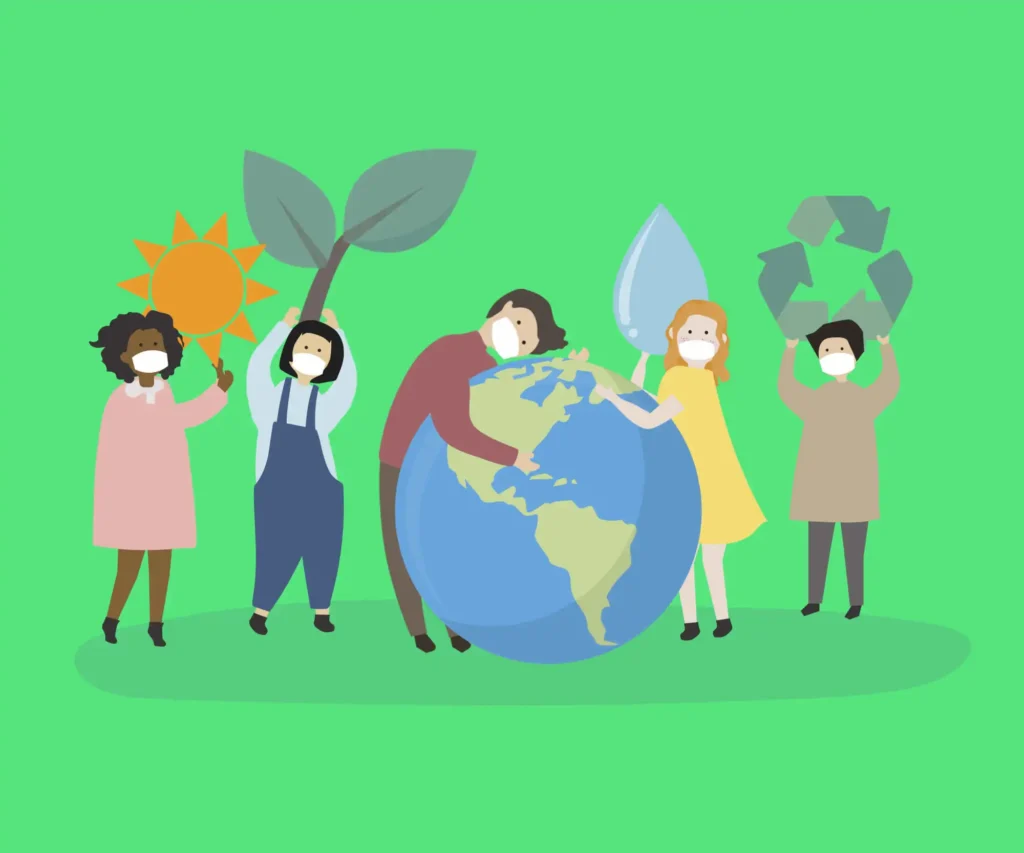
Perhaps you’ve been thinking about sustainable living lately, whether you just became a parent, watched a terrifying environmental documentary, or saw a friend’s annoying posts on thrifting. You want to start an eco-responsible lifestyle, but without feeling the burden. How realistic is it? Especially now that we’re battling new variants of the coronavirus. Granted, the situation is a mixed bag of unrelenting problems, but sustainability consultants say the solutions are closer to us than they may appear. In this post, we will examine sustainable living in a post-COVID world and what we can do to achieve it within our means and at our own pace.
Why sustainable living cannot wait any longer
As recently as yesterday, the world was scrambling to evade a little-known deadly virus. The outbreak of COVID-19 sent discussions on global warming and carbon emissions to the back of the line. But isn’t it time to take a look at the effects of the pandemic on the environment? Studies reveal that “more than 8 million tons of pandemic-associated plastic waste have been generated globally, with more than 25,000 tons entering the global ocean.” Now, that sounds like quite the chore in terms of clean-up.
Single-use plastics, disinfectants, and antibacterials are still highly favoured in wary homes. The dependency on online shopping has only seen a steady rise since lockdowns (online sales have increased more than 52% since 2020), increasing the use of plastics in packaging. Public transport is still only a tentative option for many. Considering this trend of higher resource consumption, how does the bio-friendly movement fit into the new normal?
Sustainable living, a phrase that has been going around a lot, sounds loaded and cumbersome. In truth, we don’t have to make steep sacrifices (yet). We only need to take inventory and re-organise our resources. Sustainability is not so much about ‘what we must stop doing’ as it is about ‘changing the rate at which we are doing it.’
So, what should we do?
Before answering that, we need to understand how we got to the point where sustainability can’t wait any longer. Global bio-investigations to determine the source of the virus have not been conclusive. Many fingers, however, were initially pointed at wildlife, which was thought to carry the illness. This led to the potential explanation that these pathogens (fondly known in the streets and soap commercials as ‘germs’) adapted to affect humans over time.
How? The proximity between wildlife and humans has radically reduced.
Why? We’re cutting down their habitat!
Essentially, we are taking large bites out of our forest reserves at an alarming pace, leaving no time for the environment to re-grow its green cover. This forces wild species out of their natural homes and into human vicinity.
Now, enter sustainable living: the only contender to fight mindless consumption of limited resources. But what does it mean for us in terms of our immediate everyday lives? After all, the pandemic has proven that our dependency on plastics is far from over.
Believe it or not, innovations and creative solutions are here to the rescue! So we need not throw in the towel just yet.
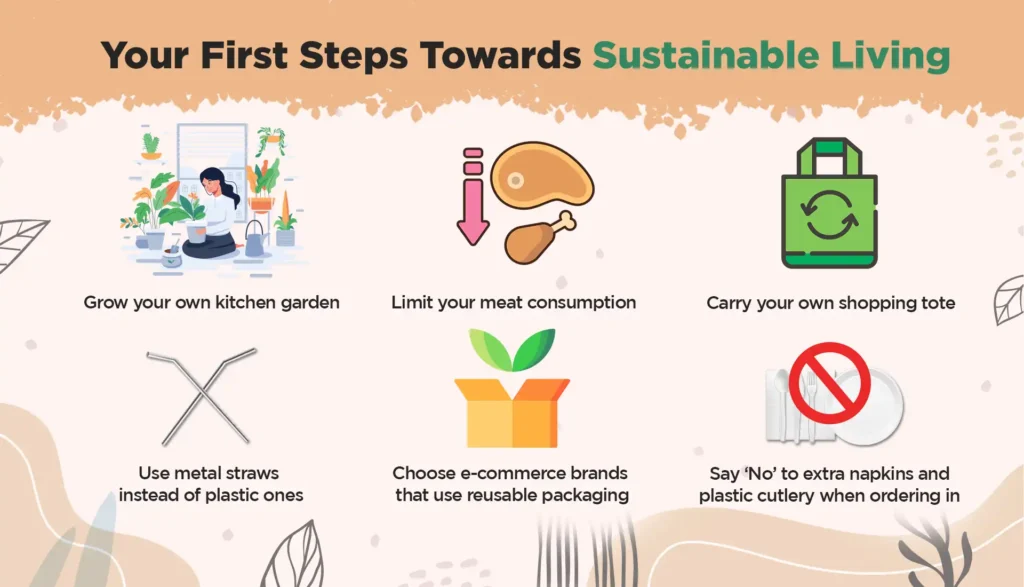
If you identify as a recent convert to the cause of living sustainably, here’s where your journey can take off:
- Paint the town green: Since food demands put the biggest burden on our planet, shouldering just a small part of the agricultural burden could have profound effects. If ‘green thumb’ is not how friends would describe you, begin with a basic kitchen garden of microgreens. They are low-maintenance, nutrient-rich plants that feature in exotic-looking salads (perfect for the ‘gram with a little #CreateandCultivate). Soon, you’ll find yourself growing more and more adventurous, rapidly dabbling in the joys of repotting, watering, and reaping. Before you know it, you could be your own grocer accounting for up to 50% of your produce. The governments of Singapore and the Philippines are already encouraging their urban populace toward this practice by rolling out garden kits. They aim to cover 30% of their food needs with locally grown food by 2030.
- Pick and choose your meat days & cheat days: Livestock rearing for food purposes ranks as the leading cause of global warming. As the demand for meat increases, forests are relentlessly cleared to make way for ranches. The personal choice to limit consumption of meat alone (just a midway compromise) can affect a significantly positive change in the depletion of natural resources. Reconsider the meat-to-veggies ratio in your recipes and find ways (like zero-waste cooking) to make your meat purchase last a little longer. The planet will thank you, along with your coronary arteries, your gut health, and your immunity.
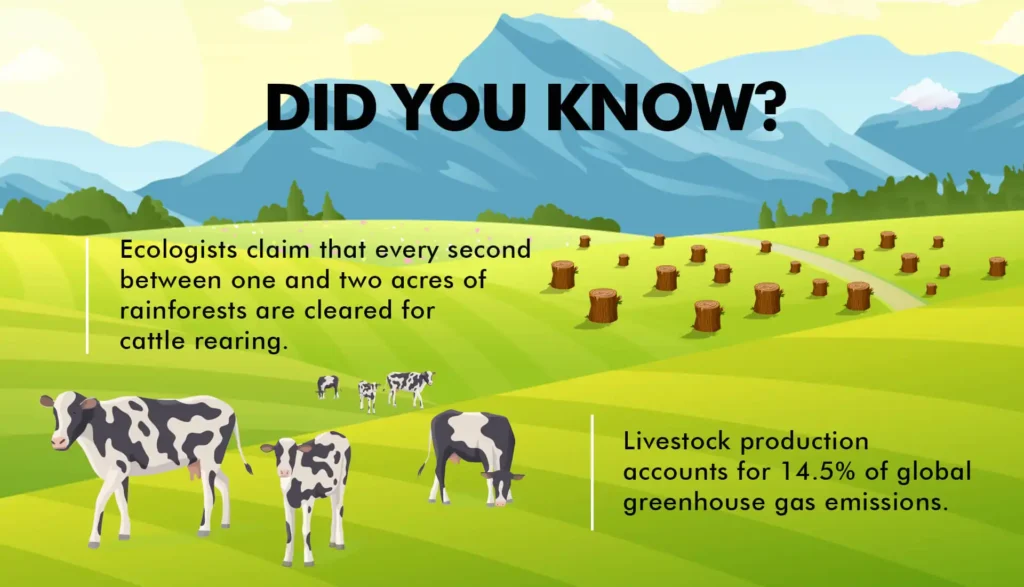
- Know your stores: Before making any purchase, quickly research which store or brand practices the greenest policies. This doesn’t mean merely checking if the labels proclaim that the product is “cruelty-free” and “eco-friendly”. E-commerce platforms like Evakind and Only Ethikal use biodegradable tags, reusable packaging and go paper-free with invoices. Courier services like DHL use bicycles and electronic vehicles to transport packages. Physically visit local stores first and bring your shopping tote with you. Cast a glance at all aisles, taking note of what else is available, so you know better for next time. If only virtual stores have what you need, try shopping close to home to save shipping resources. And let’s be honest, a shorter and cheaper shipment is a bargain to brag about in the real world.
- The good ol’ switcheroo: Just overall mindfulness in terms of what materials you’re using for which purpose can save you from regret. If you’re a smoothie fanatic, ditch the disposable straw and carry your metal straw with you as you walk into your regular juice bar. When the gang is gathering at your place for game night, choose reusable serveware instead of solo cups and paper plates. If you’re having food delivered to your door, take those seven extra seconds to add instructions that reject napkins and plastic cutlery.
Need more help? The info-reservoirs are abundant and easy to follow these days. Apps like Ailuna and Oroeco, among several others, help track your consumptive habits and offer personalised and convenient green alternatives.
As far as silver linings go, we have it good. Potential eco-solutions are all around us, in small and easy doses. All it takes is a conscious mind and a willing attitude to begin to undo some of our own wreckage. One thoughtful step at a time.
Get your organic cape on. The planet awaits!
